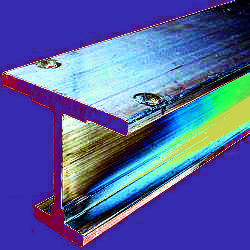BlueScope gets coal tick
 Australia’s biggest steelmaker says it needs to bring in much more coal.
Australia’s biggest steelmaker says it needs to bring in much more coal.
BlueScope's Port Kembla coal terminal is set to undergo a major $182 million upgrade after receiving approval from the New South Wales (NSW) government to import coal from Queensland.
The project has been designated as Critical State Significant Infrastructure in NSW, allowing for the enhancement of three berths at the terminal to commence promptly.
Planning Minister Paul Scully says coal imports are needed as the supply of metallurgical coal from the local coalfields near the Illawarra region diminishes.
The construction of the upgraded terminal is expected to generate employment for approximately 100 people over a span of two years.
The existing berths, constructed in the 1950s, currently handle a relatively small amount of coal from outside NSW.
As the Dendrobium Mine in the region winds down, BlueScope is compelled to seek alternative arrangements.
“So, we look to provide that capacity of importing coal here across our berths,” says David Scott, BlueScope's general manager of Manufacturing for Australian Steel.
“That coal will more than likely come out of the Queensland coal basins.”
Aside from importing coal, the new berths also hold potential for accommodating lower-emission steelmaking technologies, such as biochar.
Biochar employs biomass, such as timber waste, as a substitute for pulverised coal, effectively reducing carbon emissions.
BlueScope recently completed a successful 1,000-tonne biochar trial in its No. 5 Blast Furnace. However, the company faces challenges in establishing a reliable biochar supply chain.
“The supply chain does not exist,” Scott says.
“We need to continue to explore opportunities to develop a supply chain of biochar in the future, such that we have a viable supply chain that we can bring biochar, potentially, in over our berths.”
In a separate sustainability initiative, BlueScope announced its intention to invest $300 million in constructing an electric arc furnace (EAF) at its Glenbrook operations in New Zealand.
This move aims to facilitate the decarbonisation of its operations by ensuring a dependable and cost-effective supply of renewable energy and domestic scrap steel.








 Print
Print